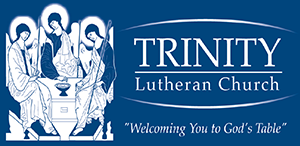I’ve had the pleasure of meeting several authors. I’m sharing reviews of two books by two authors that I’ve met over the past few years. These books are very different, but both are definitely worth reading. The first book is brand-new; the second has been around for a while. Neither of these authors is very famous, but both are very wise.
The Wisdom of Your Heart by Marc Alan Schelske
Marc Alan Schelske has written a book that blends biblical studies, theology, psychology and personal transformation to produce insights that not only change the way you think about your emotions but also can improve the way you live.
Marc begins his book with his own emotions — how he learned to recognize different emotions, learn from them and use them to build better relationships. He uses helpful metaphors such as “emotions are like the check engine light in your car.” Like a check engine light, our emotions let us know that something is happening inside, potentially something serious that needs to be dealt with. And many people ignore their emotions, just like we ignore the check engine light. Sometimes the consequences are minor, but sometimes ignoring that check engine light means a ruined engine. Ignoring our emotions can cause a great deal of damage to ourselves and to our relationships.
The book explorers numerous biblical passages, and one of the most helpful aspects of the book is Marc’s analysis of passages that describe God’s emotions. Marc’s careful examination of the biblical text led him to coin a new word to describe God — “omnimotive.” God has experienced all emotions, but God has not been overwhelmed by emotions as we are. In God, we find the healthy expression of all emotions, even emotions that we consider negative. Since we are made in God’s image, emotions are part of that image, and learning to accept, explore and experience our emotions in healthy ways is a part of being conformed to the image of God.
Although this book contains many deep insights, it is easy to read. Marc’s writing style is personal and inviting. He also ends the book with concrete suggestions to help you explore your emotions and become more emotionally healthy. His five step method of Attend (notice your feelings), Articulate (name your experience), Ask (consider the meaning), Assay (weigh the value) and Apply (act with intention) serves as a practical model for gaining more emotional maturity. Anyone who wants to understand their own and others’ emotions more deeply and grow in emotional health would benefit from this book.
Truly Present by Dr. Lisa Dayhill
Dr. Dahill does an excellent job showing how contemplative prayer practices and the liturgy of corporate worship services can be used together to help develop a deeper connection with Jesus. She begins with an imaginative reading of Luke 5:1-11 that opens the deep meaning of the text in a way that communicates God’s grace not only to the head but also to the heart. It is an excellent illustration of an underlying theme of the book: prayer, both corporate and contemplative, is meant to open our lives to the grace and love of God. Some corporate practices (such as confession) or contemplative practices (such as centering prayer) help clear away sin and distraction so that we can be more open to the gracious God who has already found us. But the point is that God finds us and loves us. Worship and contemplative practice help open our eyes to the already existing reality of God’s presence and love.
The whole book is an invitation to a deeper level of spiritual experience and includes instruction in a variety of traditional contemplative practices (e.g., Centering Prayer, the Ignatian Examen, Lectio Divina). What makes this book different from others on contemplative practice is that way that it invites readers to also experience God — the same God encountered in the contemplative practices — in the “ordinary” worship we experience on Sunday mornings. “Every Sunday or mid-week service represents a threshold moment, an occasion where the usual rules of our daily existence are suspended, new and holy realities may surprise us, and we become open to transformation in the living presence of God” (Kindle location 162). Of course, this is an insight shared by the monastic tradition, but it is virtually unknown in most congregations.
I listened to several other books while driving around this summer, including The New Parish: How Neighborhood Churches Are Transforming the World, AND: The Gathered and Scattered Church, The Divine Dance: The Trinity and Your Transformation, and Marketing: A Love Story (I don’t only read religious books ☺). But I read the two books above. Audiobooks were not available, but after meeting the authors, I knew that the books would be worth reading.
What books have you read or listened to recently? I’d like to hear your recommendations.
